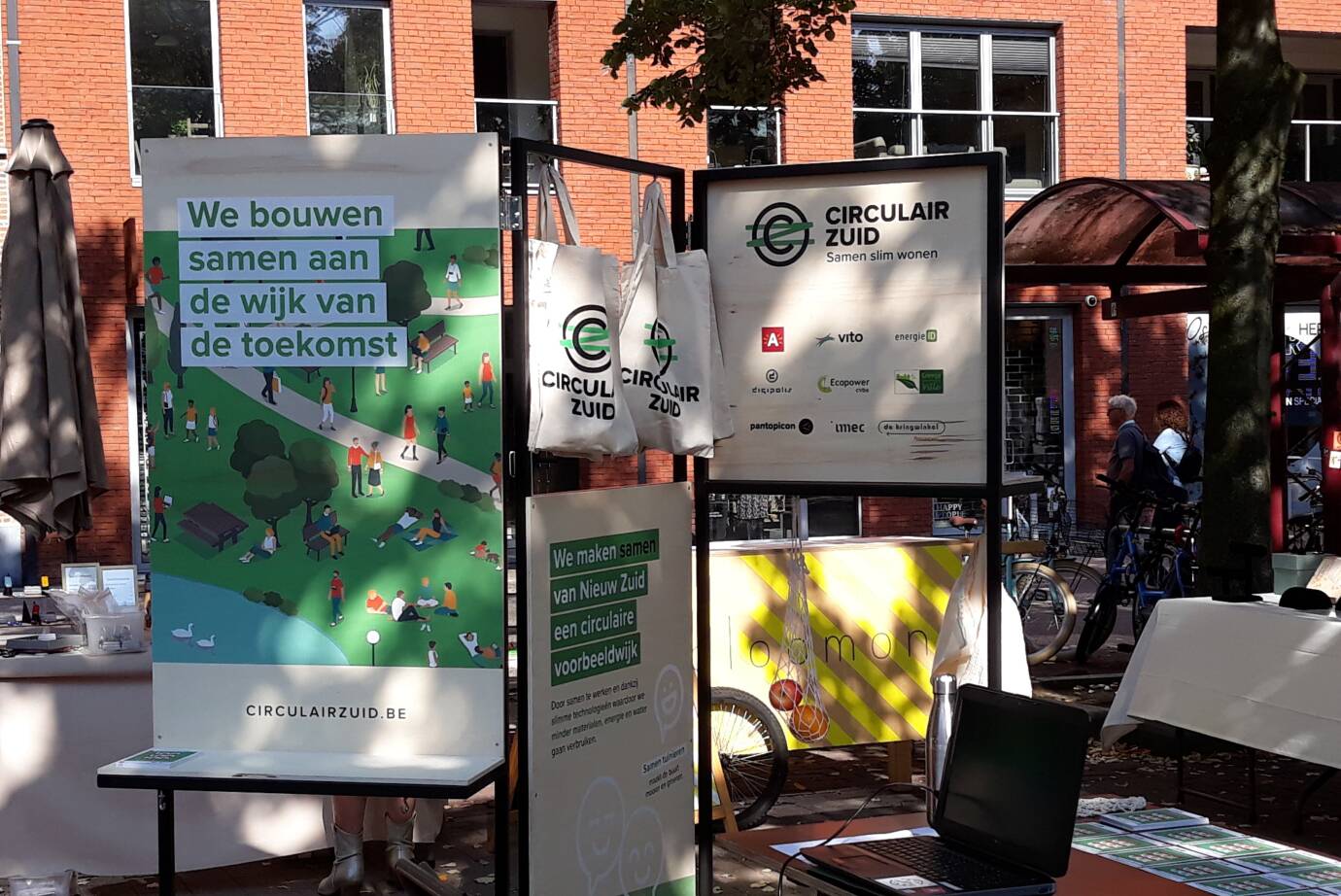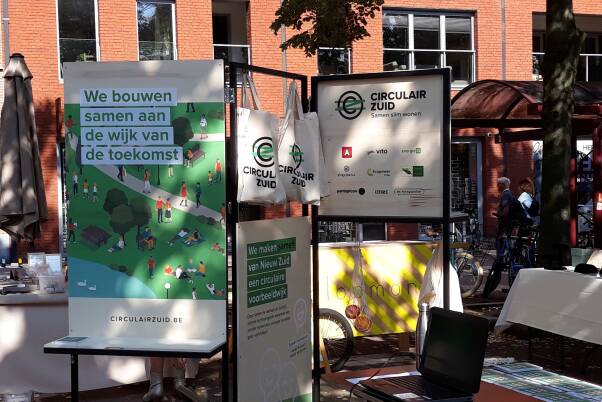

SCROLL
© CIRCULAIR ZUID
If we have learnt one thing from the Circular South project, it’s that meeting each other works. Thanks to the group feel and the communal goal, the participating neighbours recorded wonderful results and maintained the circular habits for much longer. But to come to a sustainable behavioural change across the entire city, there is sustainability-based legislation required. Behavioural change also demands permanent incentives and ready-for-use projects or instruments with which residents can easily start working.
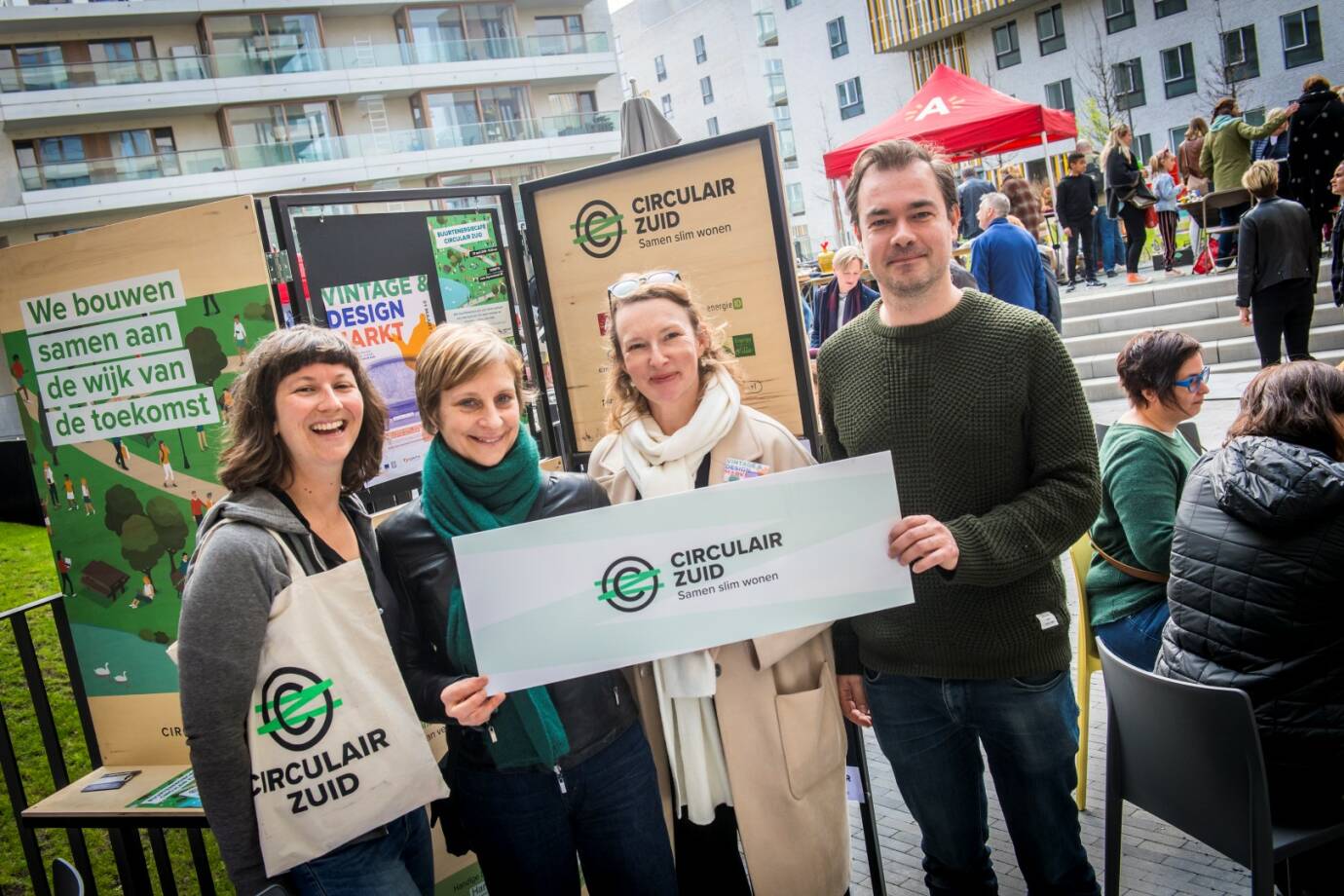

Convincing people is difficult with a blank page
Circular South is a co-creation project: the residents help to build all the projects from scratch. In other words, in the beginning, we had very few incentives to draw the residents into the project. There was no community, no app, no solar installations. Actually, we asked them for blind trust as they committed to their sustainable neighbourhood. This made recruitment difficult. It was only in the final year, when the various projects were given form and more people came to live in the neighbourhood, that the recruitment began to run more smoothly. As such, three and a half years appeared too short to take major steps. If we were to do this again, we would make sure that essential project elements, such as the solar panels, were already present.
Subsidy projects: more of an eye for cross-pollination
Circular South received grants from the European Urban Innovative Actions programme. The success for a number of innovative projects is often dependent on such project calls. From our perspective, there could be a lot more attention for cross-pollination, building upon earlier projects, and exchange of knowledge; this way you don’t need to start from scratch. Especially since the three-year period appeared to be much too short for us to achieve everything. And we would welcome more freedom within the project calls as some valuable things could not be pursued because they were not described or included in the original project request.
All aboard
A project like Circular South touches on a large number of policy themes. For the project to succeed and to later expand to the entire city, you need commitment from all city administrators and on the political level.
Our tips?
- Assemble your project team together with various city services.
- Involve all services in the drafting of the project plan.
- Keep communicating throughout the project and make links with other city projects.
It is also worth remembering that the project developer for New South was not an official partner of the Circular South project. That regularly resulted in difficulties such as the installation of solar panels and technical installations.
Little interest in extra investments
A lot of residents consciously chose for the sustainable neighbourhood and the new energy-efficient houses and apartments. They had the feeling that they couldn’t do much better than that. As a result, they were reluctant to make further investments in, for example, community solar panels. Today, sustainable products are a lot more expensive than disposable products because the ecological costs are not included in the price of disposable products. As such, people have no incentive, but need to make the effort and pay more for the sustainable alternative.
Behavioural change: bottom-up and top-down
The community of residents was crucial for Circular South. Residents convinced their neighbours to take part in the project. They stimulated and inspired each other to use less energy and water, to produce and dispose of less garbage, and to share and repair items. Being together and working together triggered the group feeling. But to change behaviour in the long term, incentives are a must. Initiatives do not develop themselves.
Meeting works
Meeting, collaborating with and being together with other people had an enormous, positive effect on the commitment of our participants. In a friendly and safe environment where people could relax, the work on a circular economy went much more smoothly. A lot of participants let us know that they felt better without the urge to consume.
Need for a clear benefit to residents
By switching to a circular life, we keep the city liveable for ourselves, but also for anyone who comes after us. A long-term story is a difficult way to convince people to make a change. What they want most is a direct benefit for themselves; a lower energy bill for example. We noticed the same things with communication about the Circular South project. The overall story appeared to be too far removed from the typical reality. So we quickly approached it from a different perspective, with the focus on concrete actions and initiatives. We zoomed out only when it was truly necessary.
Project work and community work are two separate things
With a community, you initially bring people together and they go in search of shared interests and want to work on them in co-creation. Project recruitment starts from set goals. In the Circular South project, a lot of things were already set, such as the technologies. As a result, co-creation in the community was limited. Our advice: give the community enough space and freedom.
Communication as a lever for behavioural change
A mix of old and young, prosperous and less prosperous, consciously sustainable and less interested all live in New South. To reach them, we needed to be active both online and offline, adapting our messages to the various target groups such as the beginners and the more advanced. As well as this, we wanted to keep a much broader audience in Antwerp informed. We made flyers, posters, information kits, presentations and signs. We communicated via the website, newsletters, social media and the app. We made short interactive films and organised the Beyond Circular South conference. These different channels, target groups and messages often made the communication particularly complex, but it was needed to bring everyone on board.
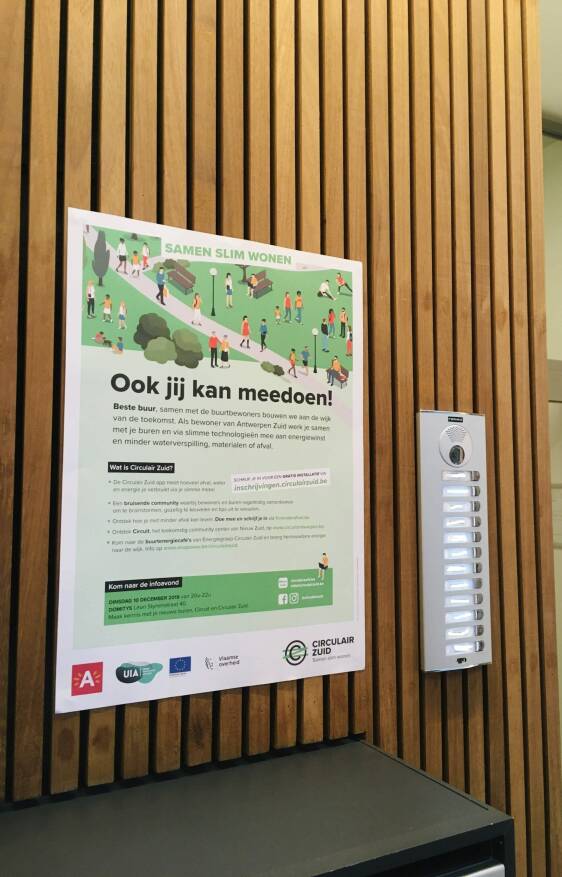
Lessons learnt

Lessons learnt around organisation and administration
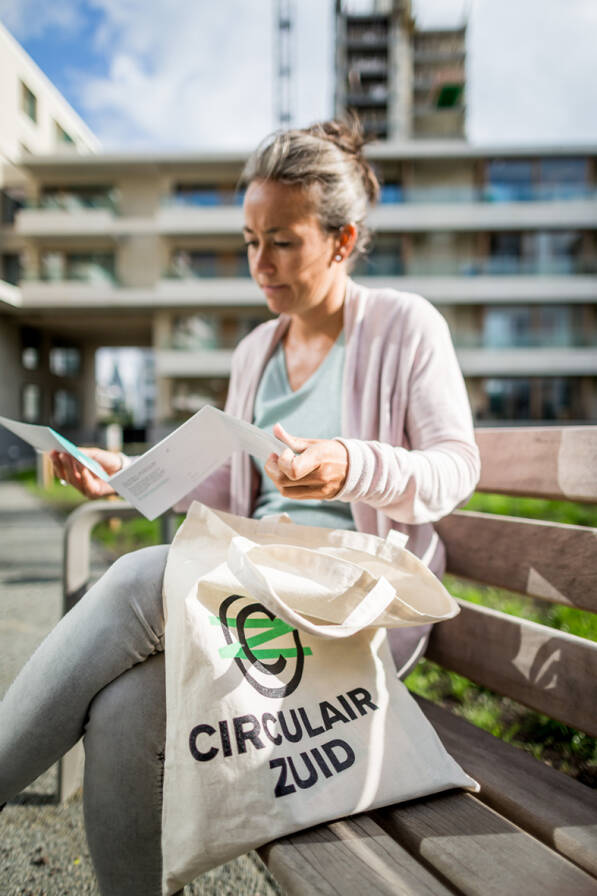

Lessons learnt on the substantive project
Innovations in an administrative context
Call for faster government processes: long decision-making cycles, tendering rules and complex structures within the government have made it difficult to more forward quickly. We have therefore outsourced the selection process of our suppliers to private project partners on many occasions. If governments want to quickly make the most of innovations, changes to legislation are required.
- Basis for new legislation: the key to making new legislation after projects like Circular South is in the hands of the governments. Various City of Antwerp services are now working on a communal vision for the city, based on our experiences. Local governments have many instruments available to them to help this sustainable transition move forward; regulations on building are just one example.
© CIRCULAIR ZUID
© CIRCULAIR ZUID
© Lucid
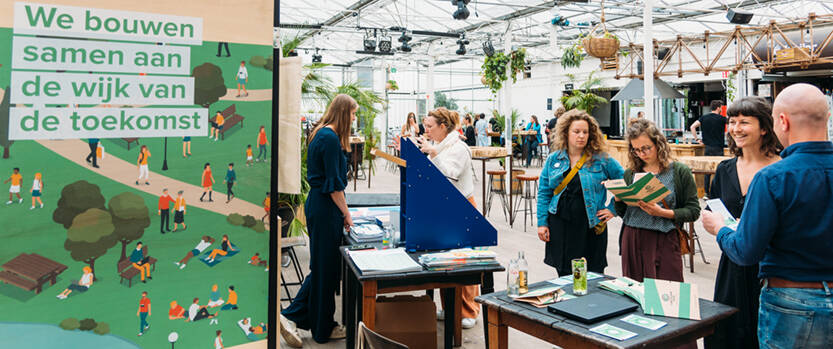
© Jef Claes
© Lucid
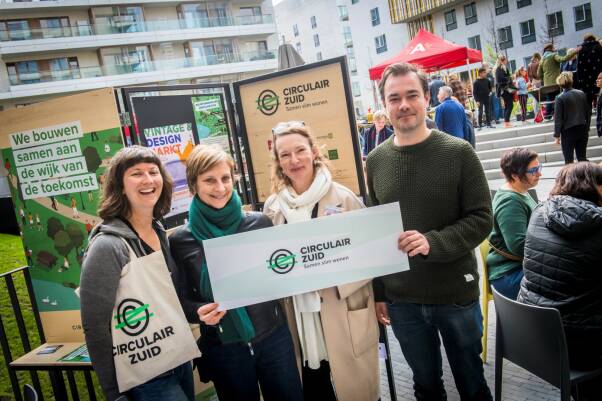
Lessons learnt
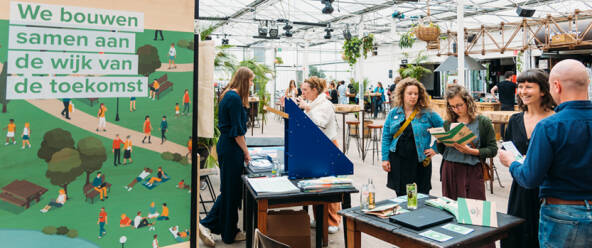
If we have learnt one thing from the Circular South project, it’s that meeting each other works. Thanks to the group feel and the communal goal, the participating neighbours recorded wonderful results and maintained the circular habits for much longer. But to come to a sustainable behavioural change across the entire city, there is sustainability-based legislation required. Behavioural change also demands permanent incentives and ready-for-use projects or instruments with which residents can easily start working.

Lessons learnt around organisation and administration
Convincing people is difficult with a blank page
Circular South is a co-creation project: the residents help to build all the projects from scratch. In other words, in the beginning, we had very few incentives to draw the residents into the project. There was no community, no app, no solar installations. Actually, we asked them for blind trust as they committed to their sustainable neighbourhood. This made recruitment difficult. It was only in the final year, when the various projects were given form and more people came to live in the neighbourhood, that the recruitment began to run more smoothly. As such, three and a half years appeared too short to take major steps. If we were to do this again, we would make sure that essential project elements, such as the solar panels, were already present.
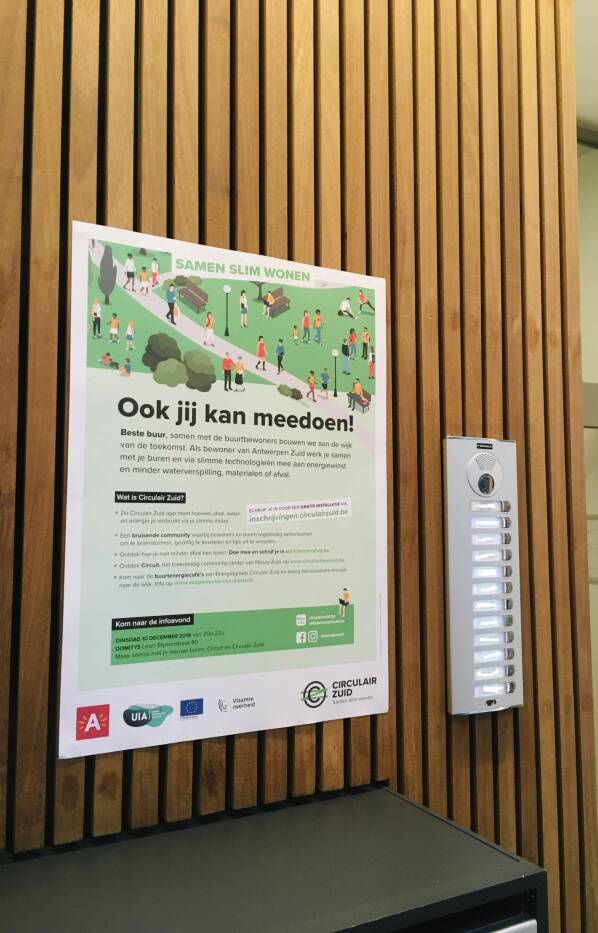
Little interest in extra investments
A lot of residents consciously chose for the sustainable neighbourhood and the new energy-efficient houses and apartments. They had the feeling that they couldn’t do much better than that. As a result, they were reluctant to make further investments in, for example, community solar panels. Today, sustainable products are a lot more expensive than disposable products because the ecological costs are not included in the price of disposable products. As such, people have no incentive, but need to make the effort and pay more for the sustainable alternative.
Need for a clear benefit to residents
By switching to a circular life, we keep the city liveable for ourselves, but also for anyone who comes after us.
A long-term story is a difficult way to convince people to make a change. What they want most is a direct benefit for themselves; a lower energy bill for example. We noticed the same things with communication about the Circular South project.
The overall story appeared to be too far removed from the typical reality. So we quickly approached it from a different perspective, with the focus on concrete actions and initiatives. We zoomed out only when it was truly necessary.
Project work and community work are two separate things
With a community, you initially bring people together and they go in search of shared interests and want to work on them in co-creation. Project recruitment starts from set goals. In the Circular South project, a lot of things were already set, such as the technologies. As a result, co-creation in the community was limited. Our advice: give the community enough space and freedom.
Communication as a lever for behavioural change
A mix of old and young, prosperous and less prosperous, consciously sustainable and less interested all live in New South. To reach them, we needed to be active both online and offline, adapting our messages to the various target groups such as the beginners and the more advanced.
As well as this, we wanted to keep a much broader audience in Antwerp informed. We made flyers, posters, information kits, presentations and signs. We communicated via the website, newsletters, social media and the app. We made short interactive films and organised the Beyond Circular South conference. These different channels, target groups and messages often made the communication particularly complex, but it was needed to bring everyone on board.
© CIRCULAIR ZUID
Behavioural change: bottom-up and top-down
The community of residents was crucial for Circular South. Residents convinced their neighbours to take part in the project. They stimulated and inspired each other to use less energy and water, to produce and dispose of less garbage, and to share and repair items. Being together and working together triggered the group feeling. But to change behaviour in the long term, incentives are a must. Initiatives do not develop themselves.
Meeting works
Meeting, collaborating with and being together with other people had an enormous, positive effect on the commitment of our participants. In a friendly and safe environment where people could relax, the work on a circular economy went much more smoothly. A lot of participants let us know that they felt better without the urge to consume.

All aboard
A project like Circular South touches on a large number of policy themes. For the project to succeed and to later expand to the entire city, you need commitment from all city administrators and on the political level.
Our tips?
- Assemble your project team together with various city services.
- Involve all services in the drafting of the project plan.
- Keep communicating throughout the project and make links with other city projects.
It is also worth remembering that the project developer for New South was not an official partner of the Circular South project. That regularly resulted in difficulties such as the installation of solar panels and technical installations.
Innovations in an administrative context
Call for faster government processes: long decision-making cycles, tendering rules and complex structures within the government have made it difficult to more forward quickly. We have therefore outsourced the selection process of our suppliers to private project partners on many occasions. If governments want to quickly make the most of innovations, changes to legislation are required.
- Basis for new legislation: the key to making new legislation after projects like Circular South is in the hands of the governments. Various City of Antwerp services are now working on a communal vision for the city, based on our experiences. Local governments have many instruments available to them to help this sustainable transition move forward; regulations on building are just one example.
© Jef Claes
© CIRCULAIR ZUID
© CIRCULAIR ZUID

